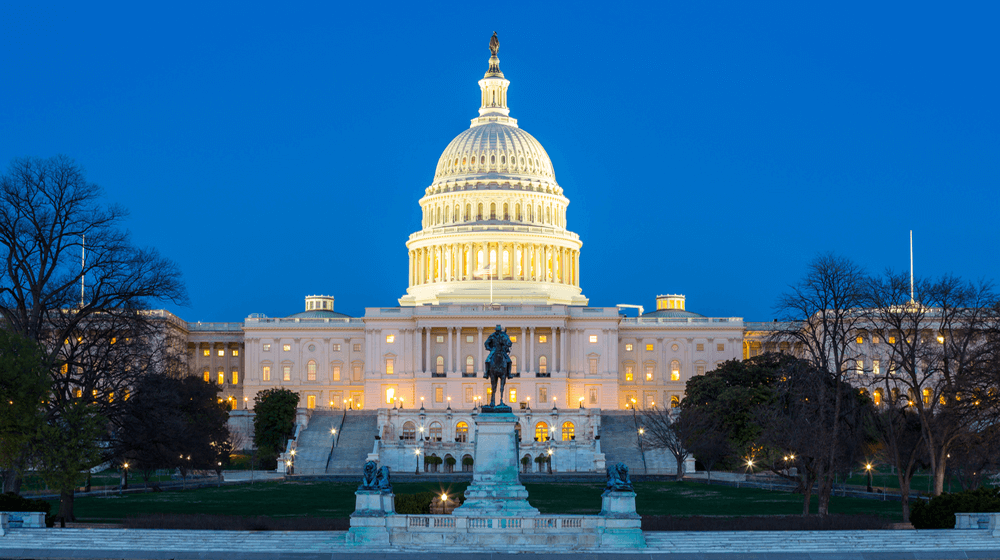- House Committee on Small Business pitches $50 billion in additional small business aid as part of a $1.9 trillion economic stimulus proposal
- Draft measure includes direct support for restaurants as well as additional funding for PPP, EIDL, and the Shuttered Venue Operators Grant Program
- Committee is also seeking a pilot program to raise awareness of available COVID-19 relief measures among business owners
A House of Representatives committee is seeking an additional $50 billion in small business aid as part of a $1.9 trillion economic stimulus measure proposed by President Joe Biden, with half of the funds dedicated to supporting restaurants and bars.
The committee’s proposals include:
- $25 billion for a new Small Business Administration grant program to assist restaurants and drinking establishments
- $15 billion for the Targeted Economic Injury Disaster Loan Advance grant program
- $7.25 billion for the Paycheck Protection Program, along with expanded eligibility for recipients
- $1.25 billion for the Shuttered Venue Operators Grant Program
- The establishment of a pilot program to make small business owners aware of the financial relief options available to them
- Approximately $1.3 billion for the administration and oversight of the programs
Restaurant aid
The new SBA program would offer grants to qualifying restaurants and drinking establishments, and include $5 billion set aside for businesses with less than $500,000 in revenues in 2019. Grants would be calculated by subtracting a business’s 2020 revenue from its 2019 revenue.
Grants of up to $10 million per entity would be available, with a limit of 20 locations per entity and a $5 million cap for any one physical location. Businesses owned by women, veterans, and socially or economically disadvantaged individuals would receive first priority for the first 21 days of the program.
Some lawmakers have indicated support for a larger relief bill for restaurants. The $120 billion Restaurants Act, first pitched by the Independent Restaurant Coalition, has been included in previous economic stimulus proposals but has not won approval.
EIDL Advance
The legislation would further bolster the Targeted Economic Injury Disaster Loan Advance grant program, which received $20 billion in additional funding as part of an economic stimulus bill passed in December.
The program, which is separate from a disaster loan program bearing a similar name, provides $10,000 grants to small businesses in low-income communities that have suffered major revenue losses due to the pandemic. The legislation would direct the SBA to solely address any shortfalls in the first 28 days after the bill is enacted so that any remaining eligible businesses could access funds.
After that point, $5,000 supplemental grants would be available to “severely impacted” small businesses in low-income communities with 10 or fewer employees and a revenue loss of at least 50 percent. If funding remains after 42 days, further grants would become available and the revenue loss threshold would be lowered to 30 percent.
PPP
The Paycheck Protection Program would receive another $7.25 billion, increasing its overall funding to $813.7 billion. The program, which offers forgivable loans to help businesses maintain payroll and meet other qualifying expenses, received a supplemental allocation after initial funding was quickly depleted last year, although $130 billion was left unspent when it expired in August. Another $284.5 billion was put into the program in the December bill, with stipulations that limited eligibility to smaller and harder-hit businesses.
The committee is also proposing to add certain nonprofits and internet-only news and periodical publishers as entities who qualify for PPP loans.
Community Navigator
The legislation would establish a Community Navigator pilot program to help raise awareness of COVID-19 relief programs among small business owners and encourage their participation, working through private organizations, SBA partners, and local governments. This program would also prioritize women, minority, veteran, and socially or economically disadvantaged business owners.
A total of $100 million would be allocated for grants, with $75 million going to outreach and education efforts. The program would remain in place through the end of 2025.
Shuttered Venues
The committee is proposing that another $1.25 billion be added to the Shuttered Venue Operators Grant Program, with funds set aside for technical assistance. The program was established in the December legislation with $15 billion available to arts and cultural institutions that have been severely impacted by the pandemic, including movie theaters, museums, and performing arts organizations.








